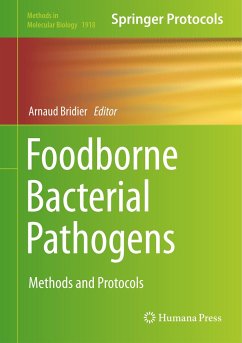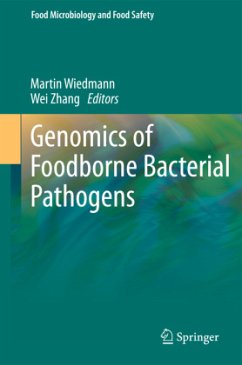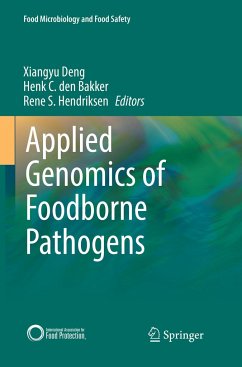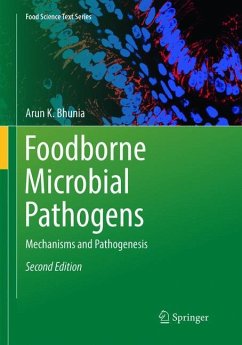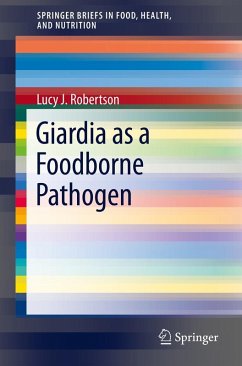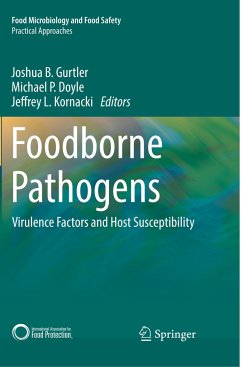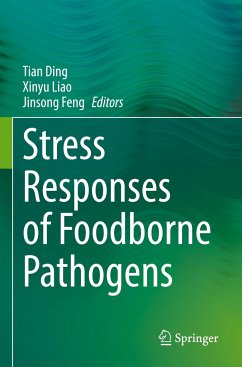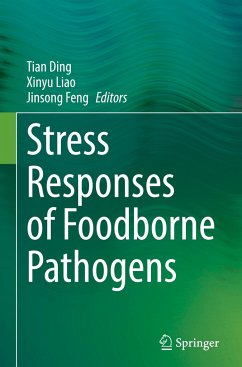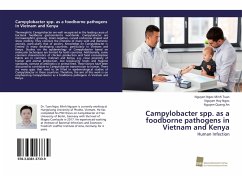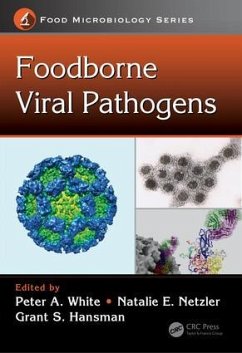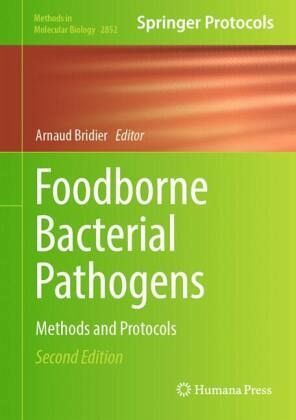
Foodborne Bacterial Pathogens
Methods and Protocols
Herausgegeben: Bridier, Arnaud

PAYBACK Punkte
83 °P sammeln!
This updated volume presents a compilation of various representative techniques and approaches currently used to study bacterial foodborne pathogens. Chapters guide the reader through bacterial pathogen detection and quantification in food, molecular, phenotypic, metabolic characterization of food pathogens, and ecology of foodborne bacterial pathogens. Written in the highly successful Methods in Molecular Biology series format, chapters include introductions to their respective topics, lists of the necessary materials and reagents, step-by-step, readily reproducible laboratory protocols, and ...
This updated volume presents a compilation of various representative techniques and approaches currently used to study bacterial foodborne pathogens. Chapters guide the reader through bacterial pathogen detection and quantification in food, molecular, phenotypic, metabolic characterization of food pathogens, and ecology of foodborne bacterial pathogens. Written in the highly successful Methods in Molecular Biology series format, chapters include introductions to their respective topics, lists of the necessary materials and reagents, step-by-step, readily reproducible laboratory protocols, and key tips on troubleshooting and avoiding known pitfalls.
Authoritative and cutting-edge, Foodborne Bacterial Pathogens: Methods and Protocols, Second Edition aims to ensure successful results in the further study of this vital field.
Authoritative and cutting-edge, Foodborne Bacterial Pathogens: Methods and Protocols, Second Edition aims to ensure successful results in the further study of this vital field.





